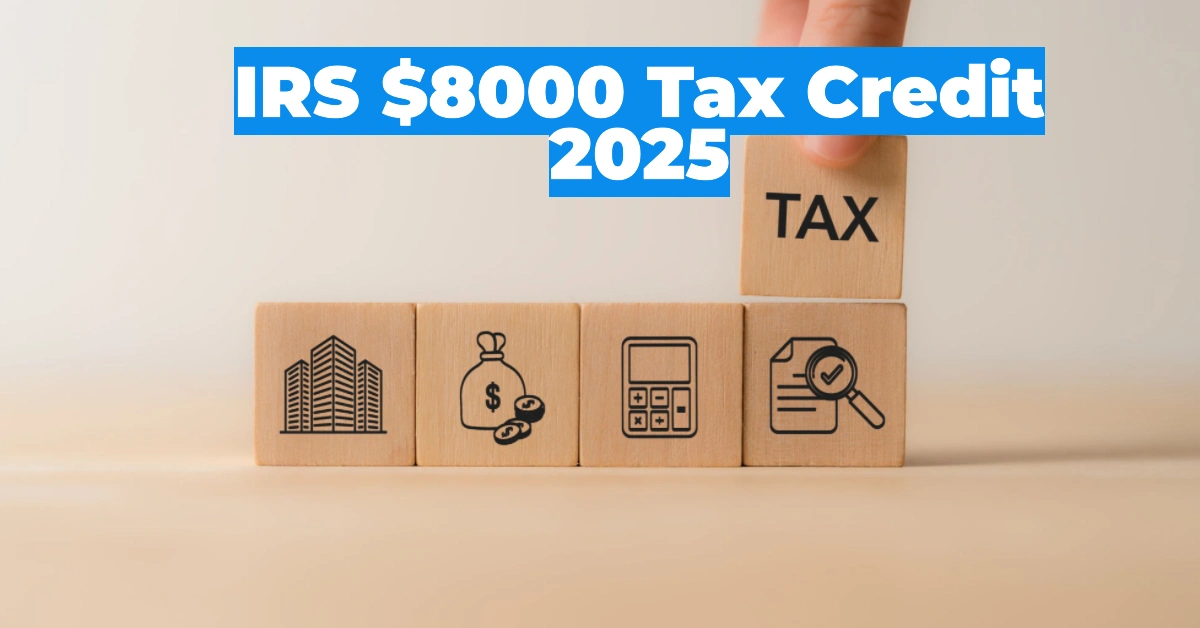The 2025 tax season is officially underway, and millions of Americans are now preparing to file their returns before the April 15 deadline. With the Internal Revenue Service (IRS) expecting to process over 140 million tax returns, taxpayers are looking for ways to maximize their refunds. One of the most valuable benefits available this year is the IRS $8000 tax credit, designed to provide financial relief to low- and moderate-income workers.
Table of Contents
Understanding the IRS $8000 Tax Credit
The IRS $8000 tax credit refers to the Earned Income Tax Credit (EITC), a refundable tax credit that helps working individuals and families reduce their tax liability and increase their refunds. Eligible taxpayers can receive up to $7,830, depending on their income level and the number of qualifying children. While the EITC itself does not reach exactly $8,000, some families may receive additional tax credits or deductions that push their refund close to that amount.
Who Qualifies for the IRS $8000 Tax Credit?
To be eligible for the IRS $8000 tax credit, taxpayers must meet certain requirements established by the IRS. These include:
- Earned income below the IRS limit for the tax year.
- Investment income below the IRS threshold.
- Valid Social Security number issued before the tax return due date.
- U.S. citizenship or resident alien status for the entire tax year.
- No filing of Form 2555 (Foreign Earned Income).
The IRS uses these qualifications to determine whether an individual or family is eligible for the IRS $8000 tax credit, which is specifically aimed at supporting working families who need financial assistance due to rising living costs.
IRS $8700 Stimulus Check Update: The Truth Behind the Trending Payment Rumor
SNAP Benefits 2025: How Much Does a Large Family Receive in Food Stamps?
Trump Stimulus Checks 2025: What You Need to Know About the DOGE Dividend Proposal
Earned Income Tax Credit 2025: What is the Income Limit to Receive the EITC Payment?
IRS Earned Income Tax Credit Offers up to $7,830 for low-to-Moderate Income Families 2025
How Much Can You Receive from the IRS $8000 Tax Credit?
The amount of the IRS $8000 tax credit a taxpayer can claim depends on their income level and family size. Here’s a breakdown of the maximum EITC amounts for 2025:
- No children: Up to $632
- One child: Up to $4,213
- Two children: Up to $6,960
- Three or more children: Up to $7,830
While the maximum refund from the EITC is $7,830, additional deductions or credits could bring an individual’s total refund closer to the IRS $8000 tax credit amount.
When Will You Receive Your IRS $8000 Tax Credit Refund?
The IRS processes most tax refunds within 21 days of filing if taxpayers choose electronic filing with direct deposit. However, refunds involving the IRS $8000 tax credit often face delays due to additional IRS verification processes. Here’s what you need to know about expected refund timelines:
- E-filed tax returns with direct deposit – Refunds expected as early as February 27.
- Paper tax returns or mailed checks – Processing may take 6 to 12 weeks longer.
Taxpayers who qualify for the IRS $8000 tax credit should file their returns as early as possible to ensure they receive their refunds in a timely manner.
Deadline to Apply for the IRS $8000 Tax Credit
The deadline to file for the IRS $8000 tax credit is April 15, 2025. Those who fail to file by this date may face penalties from the IRS or miss out on valuable tax credits.
For taxpayers unable to meet the deadline, the IRS allows an extension until October 15, 2025, but this extension only applies to filing—not to paying any taxes owed.
Final Thoughts on the IRS $8000 Tax Credit
The IRS $8000 tax credit serves as a crucial financial lifeline for millions of American households. By understanding eligibility requirements, payment schedules, and filing deadlines, taxpayers can take full advantage of this refund opportunity.
If you qualify for the IRS $8000 tax credit, be sure to file your return on time and opt for electronic filing with direct deposit to receive your refund as quickly as possible.
Stay informed and maximize your tax benefits this year!

